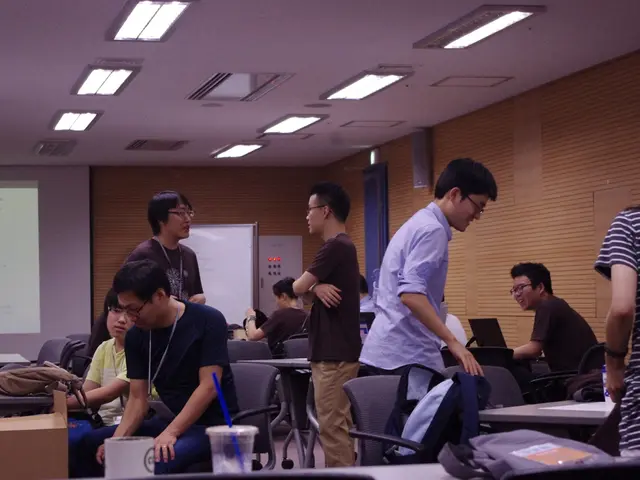Artificial Intelligence Morality and Legal Issues in Educational Settings
In the ever-evolving world of education, Artificial Intelligence (AI) is increasingly being integrated as a tool to enhance learning experiences. However, the responsible and ethical use of AI in education is essential to ensure its benefits outweigh potential risks.
AI should augment, rather than replace, educators. The human touch in fostering critical thinking, creativity, and social skills remains irreplaceable. AI, while capable of personalized learning tailored to individual student needs, should support rather than supplant the vital role of teachers.
To ensure ethical and responsible AI use, educational institutions must adhere to ethical guidelines and legal standards. This includes regular evaluation to detect and mitigate biases or discriminatory outcomes, as well as ensuring transparent, explainable AI decision-making.
Data privacy is another crucial concern. Teachers and schools must comply with privacy regulations such as COPPA and FERPA. Careful vetting of AI providers for data policies, encryption, and vendor transparency is essential to protect sensitive student information.
Clear policies should guide when and how AI-generated content can be used. Educators should promote academic honesty by discouraging plagiarism, encouraging original thinking, and adapting assessments to include in-class work, reflections, and performance tasks less vulnerable to misuse.
Bias awareness and critical thinking are also vital. Teachers need to critically review AI outputs for fairness and appropriateness, especially in diverse classrooms, and teach students to be critical consumers questioning AI’s authority and understanding its algorithmic limitations.
Ongoing teacher training is essential to understand AI’s capabilities and risks, to set consistent regulations and expectations for AI use, and to integrate AI tools effectively into instruction while fostering a culture of ethical AI use among students.
Establishing a feedback culture where students and teachers openly discuss AI’s opportunities and challenges helps promote ethical habits and responsible use.
Removing identifiable information is important when using AI for modifications for a student with an IEP. AI will not replace human teachers due to the lack of emotional intelligence and the inability to form meaningful connections with students.
The response to AI-related incidents, such as cyberbullying or AI-generated harassment, must be further developed and outlined in school Acceptable Use Policies. Edcamp-style meetings for teachers can provide continuous support and updates.
The AI 80-20 principle in education suggests that AI can do 80% of the work, but the user must edit, revise, and check the work, and add their literary voice. Human oversight and review of AI-generated content are essential to prevent bias and discrimination.
Limiting data sharing is crucial in protecting student data. The integration of AI in education raises ethical and legal concerns, such as unintentional data capture, perpetuation of biases, and misinformation. The problem lies not in the AI platform but in the internet ecosystem from which it captures information, which can lead to biased content.
Professional development, coaching, resources, lesson plans, collaboration, and sharing of best practices are essential for educators to harness the potential of AI. With the right approach, AI-powered resources can reshape the learning landscape, offering personalized insights and rapid feedback.
Read also:
- Strategies for Mitigating Negative Feelings in Customer Interaction with Your Goods or Services
- Is it necessary for concerts to be so excessively loud that ear protection is essential?
- Tech Magnate Elon Musk Accuses Apple of Favoritism, as OpenAI Garners More Popular Support
- Exploring Profitable Business Opportunities in Nigeria: Discover Lucrative Businesses Immediately






